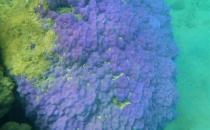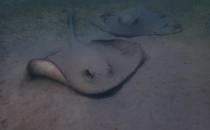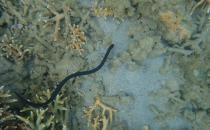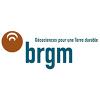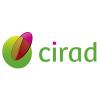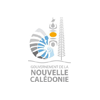PEMPOM
The PEMPOM project, emerging pollutants, organic pollutants and heavy metals, is a ground-breaking research project in New Caledonia.
While organic and metal pollutants have been studied for a long time in most temperate marine areas, research focusing on coral reefs is much more recent and remains relatively fragmented overall. Moreover, it would appear that, to date, so-called emerging pollutants have never been studied in a reef and lagoon environment.
Contamination caused by these pollutants, possibly introduced into New Caledonia’s coral ecosystems through food webs, can be directly linked to anthropogenic activities (pesticides used in agriculture, soil erosion linked to agricultural practices and deforestation, mining operations, urban activities, in the case of emerging pollutants), but can also have a natural origin as regards some metal contaminants (dissolution of rocks, etc.).
The PEMPOM project therefore aims to:
• attempt to identify the major sources of emerging, organic and heavy metals pollutants
• assess their fate and effects in New Caledonia’s reef and lagoon ecosystems (amplification -or not- in food chains)
• assess concentrations in various compartments in food chains (algae, invertebrates, fish) and the contamination of local populations consuming fish and seafood
• suggest directions for further research, such as, for example, expanding research into physiological processes
Project duration 36 month(s)
Associated program
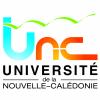
Responsable scientifique
ISEA
To date, there has been no research into emerging pollutants in the tropics; they have only been studied in temperate environments in highly developed countries. The focus has so far been mainly on freshwater ecosystems.
Although contamination due to emerging pollutants has not been of crucial interest in recent years, coral ecosystems are subject to increasing anthropogenic pressures, and it is therefore conceivable that marine environments could be affected by this type of pollutant.
Natural or mining-related sedimentation acts as the carrier of a whole range of heavy metals (Ni, Co, Cr, Mn, etc.) and/or pesticides, which could impact marine ecosystems and fish caught by traditional fishing methods.
The urban development of “Greater Noumea” also means that wastewater requires increased attention and that wastewater evacuation into the receiving environment (such as coral ecosystems) must be assessed.
Population growth also drives agricultural development to meet rising demand for food. Many pesticides are used, sometimes in poorly controlled or uncontrolled quantities. This raises the question of their fate and effects in the receiving environments, including fish and sea food consumed by the population.
The marine environment is the ultimate repository of freshwater sources throughout New Caledonia, be they underground (percolation, infiltration, etc.) or on the surface (rivers, runoff), or derived from urban waste (drains, discharge from wastewater treatment plants, etc.).
As a consequence, reef and lagoon environments are directly affected by such freshwater inflows and subject to variability in quantitative and qualitative, and also spatial and temporal terms.
The species inhabiting these ecosystems are also liable to ingest and absorb into their tissues all or part of the elements carried by water bodies, either directly (food) or indirectly (phenomena of dissemination or osmotic transport, etc.)
The PEMPOM project aims to analyse:
• the sources of emerging, organic and heavy metals pollutants;
• concentrations in various biological compartments in the coral ecosystem, and in humans who consume fish and seafood.
To this end, various research sites have been identified, such as freshwater “vectors”, including wastewater treatment plants (traditional activated sludge process and microfiltration membrane process), the lagoon and estuaries receiving water from septic tanks and household-level sanitation systems, such as the La Foa river, the area of corals opposite the estuaries.
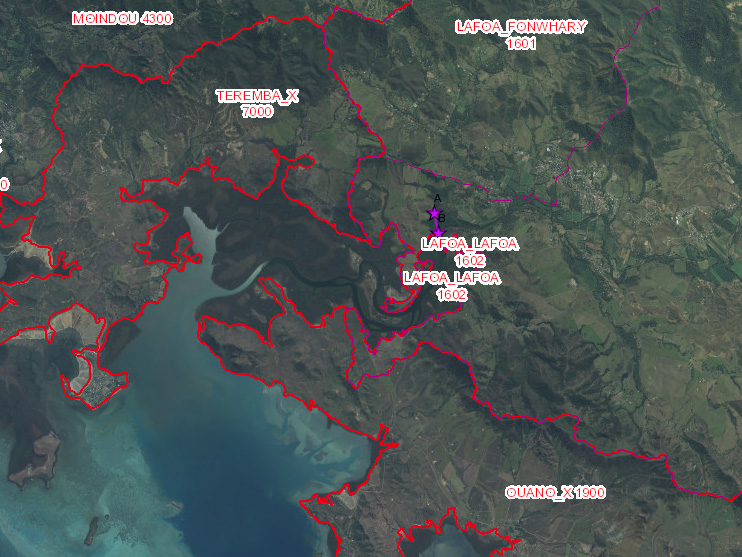
Given the total lack of prior knowledge as regards emerging pollutants in the tropics, during a preliminary phase, research will be carried out on only a few biological compartments located in the immediate vicinity of these receiving areas, to test for possible contamination of the coral ecosystem (e.g. algal turfs, territorial herbivorous fish).
The PEMPOM project will carry out targeted sampling on key species constituting “food chains”, aiming at a spatial vision in order to:
• understand how contaminants (pesticides, metals, emerging pollutants) become absorbed (or not) into these key species;
• assess health implications in the event of high concentrations of pollutants in a few iconic species of commercial interest, which are representative of the dietary habits of New Caledonians;
• assess, for the first time in New Caledonia:
o whether so-called emerging pollutants have a significant impact on the reef environment and whether there are grounds for suspecting an accumulation in food webs.
o the potential contamination sensitivity of seabirds (exclusively fish-eating), species of major heritage significance (biomonitoring, etc.)
• study various sectors characterised by dissimilar potential pollutant inputs into coral systems (reefs not impacted by humans, reefs subject to agricultural inputs, reefs subject to inputs from treatment plants).
This project is therefore designed to provide answers to key questions about contamination rates and the diversity of compartments studied, with a view to assessing how contaminants are absorbed into food webs ending with focal species.
Spinoffs from the PEMPOM project could:
• Enable findings from several Pacific islands to be transposed, at least in general terms. The project is already being conducted in close collaboration with similar projects in Wallis, Futuna, Vanuatu and Fiji;
• provide clarification on other aspects of basic research which will focus, significantly on physiological processes;
• have implications in terms of:
o management and protection of sensitive species (protected areas, raising awareness and regulatory framework, etc.)
o management of fisheries resources (traditional fishing, etc.) and development of regulations targeting fish, seafood and public health (contaminant levels and potential health risks, etc.)
o management of natural areas and species.
The PEMPOM project aims to promote collaborative work between key CRESICA consortium partners who are active in this field, i.e. the UNC, the CHT and the IRD, together with universities in France (La Rochelle and Aix-Marseille) and abroad (New Zealand), while involving Calédonienne des Eaux water company, a key player in the local economy, and also New Caledonia’s provincial government authorities.
This method of collaborative work aims to bring in partner-colleagues who have done work and/or are currently working in this area, with a view to optimising the effectiveness of work undertaken as part of the PEMPOM research project.
Furthermore, the involvement of colleagues from Noumea CHT, in close contact with medical circles, will mean that the project, according to the results achieved, could set a clear benchmark in terms of social significance.
Research work will be rooted in an approach based on dynamic predictive mathematical models and multidimensional data analysis, which will take into account the spatial variability of contaminant levels for several compartments in the food web, thereby enabling the assessment and prediction of potential contaminant accumulation phenomena.
Theoretical and digital simulation studies will also be carried out on the properties of models and estimators.
The project will also build on research recently conducted on issues directly affecting New Caledonia (thesis by M.Briand, master 2 internships by P.Fey and J.Liétar).
The workshop of the programm "Au fil de l'eau" took place on 17 and 18 September 2019, at the UNC.
Tuesday 18 September was dedicated to the intermediate results of the "Au fil de l'eau" program (whose presentation is available on the french's page of the project). This restitution day was an opportunity to exchange on the various projects that make up the program, between research professionals, actors from the public, private and associative sectors working on these themes.
Les 28 et 29 mars 2022, le CRESICA organisait le séminaire "Au fil de l'eau" qui a permis de présenter les résultats du projet.
Rapport final : projet PEMPOM
Visionnez la présentation faite lors du séminaire grâce à la vidéo du projet PEMPOM par Y. Letourneur.
